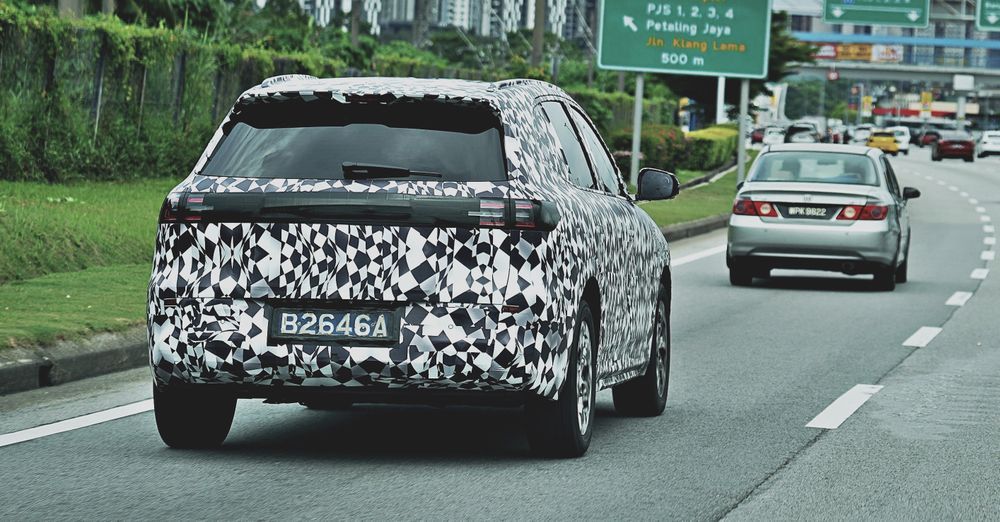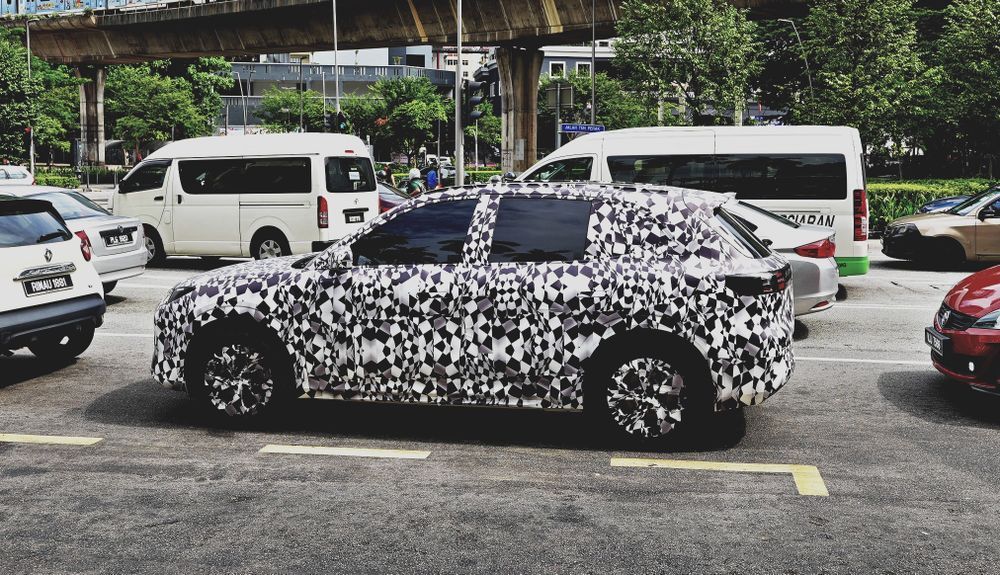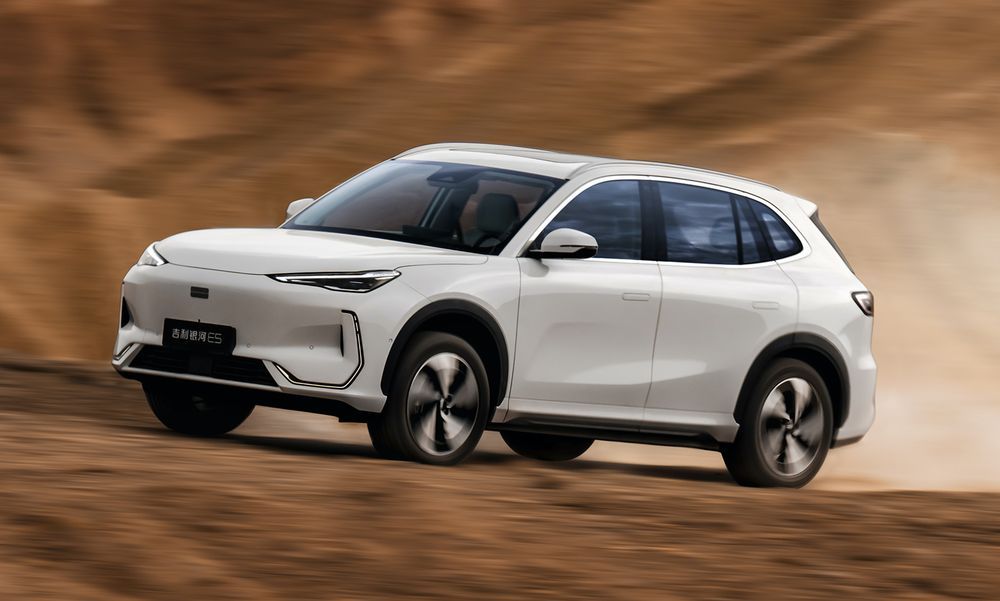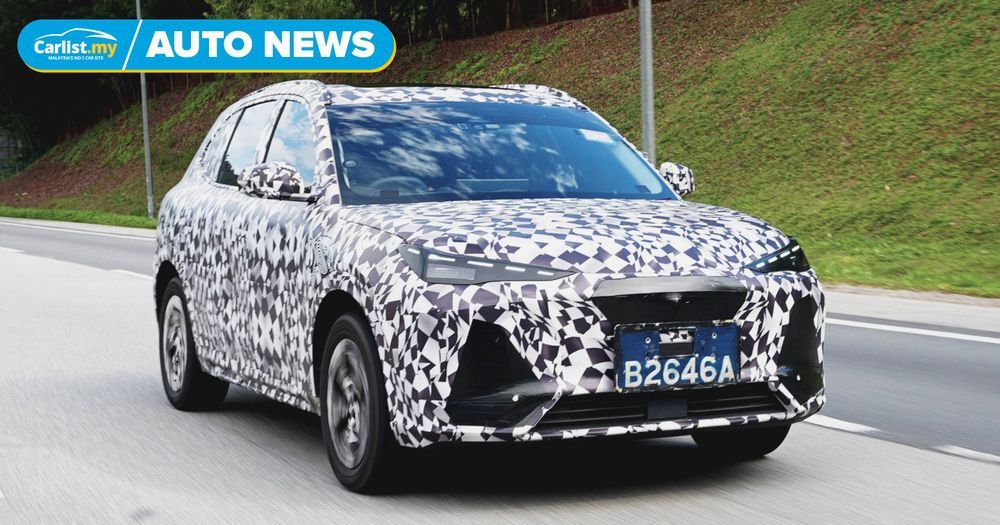Proton is gearing up to introduce the eMas 7 (but stylised as e.MAS 7) its first electric vehicle, and is working hard to distinguish it from its sibling – or twin, more accurately – the Geely Galaxy E5/EX5.
While the two vehicles may share a common platform, Proton is going hard on emphasising the significant local input in the eMas 7’s development, now detailing the extensive local testing the car has undergone (and is undergoing) to ensure it is well-suited to Malaysian roads and weather ahead of its expected launch by the end of the year.
Proton has deployed six prototypes of the eMas 7 across Peninsular Malaysia, subjecting them to a rigorous testing regime designed to evaluate their performance and durability with the goal being to ensure that the SUV can handle our uniquely punishing conditions.
Their planned testing consists of four key categories: Durability Adaptive Testing, Electrical Road Testing, Advanced Driver Assistance System (ADAS) testing, and a Quality Reliability Tests, all with the ultimate goal of fine-tuning the vehicle’s software, hardware, and overall performance.
The Durability Adaptive Testing, for example, involved subjecting the eMas 7 to real-world road and traffic here with Proton’s engineers hard at work also to update the car’s navigation system maps and testing internet connectivity in remote and hilly areas as well as near train stations.
Its ADAS systems, which include safety features like collision avoidance and lane-keeping assistance, were also tested in various settings, including shopping mall car parks and elevated roads, to ensure they function properly no matter what Malaysia throws at it.

Proton is also conducting a 10,000 km road test as part of the Electrical Road Testing process, designed to ensure that the vehicle’s electronic components are fully integrated for seamless operation. Part of this effort involved localizing key software components, including translating the Chinese-language Flyme Auto infotainment system into Malaysian English and adapting settings to better suit local needs.
Going further than the norm, 49 additional testing procedures have been added to the process, some of which are unique to Proton, to ensure the eMas 7 meets both local and international standards.
These additional tests include evaluations of the vehicle’s load-bearing capabilities and stability control. Notably, Proton has ensured that the eMas 7 offers a maximum water-wading depth of 400 mm, surpassing its Geely counterpart to provide extra protection when encountering flooding, something many will appreciate when caught in Malaysia’s monsoon season.

Moreover, the electric SUV has undergone a comprehensive speed bump test to simulate typical Malaysian road conditions and Proton also plans to conduct a 100,000 km Quality Reliability Test, which will evaluate the car’s acceleration, braking, energy consumption, and software performance. Additionally, either just prior or soon after its launch, the eMas 7 will be subjected to the ASEAN NCAP crash and safety tests to ensure it meets all promised safety crit
The eMas 7 is based on the Global Modular Architecture (GMA) and features a 12-in-1 motor with an impressive efficiency of 90.04%. It is powered by a lithium iron phosphate (LFP) battery with Aegis “short blade” cells and utilizes the Flyme Auto infotainment system, which operates on a 7 nm chip. Although official specifications have not yet confirmed, it is expected that the eMas 7 will share mechanical similarities with the Geely Galaxy E5.

In China, the Galaxy E5 is equipped with a front motor that generates 218 PS (160 kW) and 320 Nm of torque, allowing it to accelerate from 0 to 100 km/h in 6.9 seconds. Two battery options are available, both lithium iron phosphate packs with Geely’s advancaed Aegis technology, with ranges of up to 530 km.
